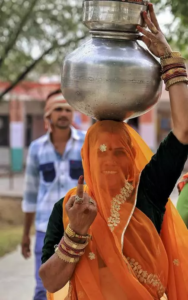Press Release, 16/07/2021
GENEVA (16 July 2021) – UN human rights experts today called on India to halt evictions of some 100,000 people – including 20,000 children – that began this week in the midst of monsoon rains.
Demolition of homes began on Wednesday, 14 July, in a village in Haryana State built on protected forest land, even though the forest was actually destroyed decades ago by heavy mining.
“We appeal to the Indian government to respect its own laws and its own goal of eliminating homelessness by 2022 and to spare homes of 100,000 people who mostly come from minority and marginalised communities,” the experts said. “It is particularly important that residents be kept safe during the pandemic.”
The experts said residents “have already been hard hit by the COVID-19 pandemic, and the eviction order would put them at greater risk and bring even more hardship to some 20,000 children – many of whom may remain out of school – and 5,000 pregnant or breastfeeding women.”
They live in Khori Gaon (village) in Faridabad, in India’s north-central Haryana State, on land that was designated as a protected forest in 1992, despite there being no forests on it. Some 2,000 homes were demolished earlier in two waves in September 2020 and April this year. Residents challenging the evictions received a severe setback when the Supreme Court last month ordered the complete removal of the settlement by 19 July.
“We find extremely worrying that India’s highest court, which has in the past led the protection of housing rights, is now leading evictions placing people at risk of internal displacement and even homelessness, as is the case in Khori Gaon,” the experts said. “The role of the Supreme Court is to uphold the laws and to interpret them in light of internationally-recognized human rights standards, not to undermine them. In this case, the spirit and purpose of the Land Acquisition Act 2013, among other domestic legal requirements, have not been met.”
The experts added that “lockdowns imposed during the pandemic have made it difficult for settlement residents to earn a living, and they are suffering psychologically because of the eviction threat.”
Water and electricity were cut off several weeks ago. Human rights defenders and residents who organised protests say they have been beaten by police and arbitrarily detained. There have also been arbitrary orders against the exercise of the right to peaceful assembly, the experts said.
“We call on India to urgently review its plans for razing Khori Gaon and to consider regularizing the settlement so as not to leave anyone homeless,” the experts said. “No one should be forcibly evicted without adequate and timely compensation and redress.”
They urged India, currently a member of the Human Rights Council, to ensure that its policies and practices fully comply with international human rights standards governing relocations, evictions, and internal displacement especially on government’s own land.
“It is especially important that this act of mass displacement does not happen during the pandemic,” they said.
The UN experts are:
- Mr. Balakrishnan Rajagopal, Special Rapporteur on adequate housing as a component of the right to an adequate standard of living, and on the right to non-discrimination in this context.
- Ms. Mary Lawlor, Special Rapporteur on the situation of human rights defenders.
- Ms. Cecilia Jimenez-Damary, Special Rapporteur on the Human Rights of Internally Displaced Persons.
- Fernand de Varennes, Special Rapporteur on minority issues.
- Mr Pedro Arrojo-Agudo, Special Rapporteur on the human rights to safe drinking water and sanitation.
- Mr. Olivier De Schutter, Special Rapporteur on extreme poverty and human rights.
- Ms. Koumbou Boly Barry, Special Rapporteur on the right to education.
[Special Rapporteurs are part of what is known as the Special Procedures of the Human Rights Council. Special Procedures, the largest body of independent experts in the UN Human Rights system, is the general name of the Council’s independent fact-finding and monitoring mechanisms that address either specific country situations or thematic issues in all parts of the world. Special Procedures’ experts work on a voluntary basis; they are not UN staff and do not receive a salary for their work. They are independent from any government or organization and serve in their individual capacity.]
[Courtesy: The Office of the High Commissioner for Human Rights, United Nations (www.ohchr.org)]




